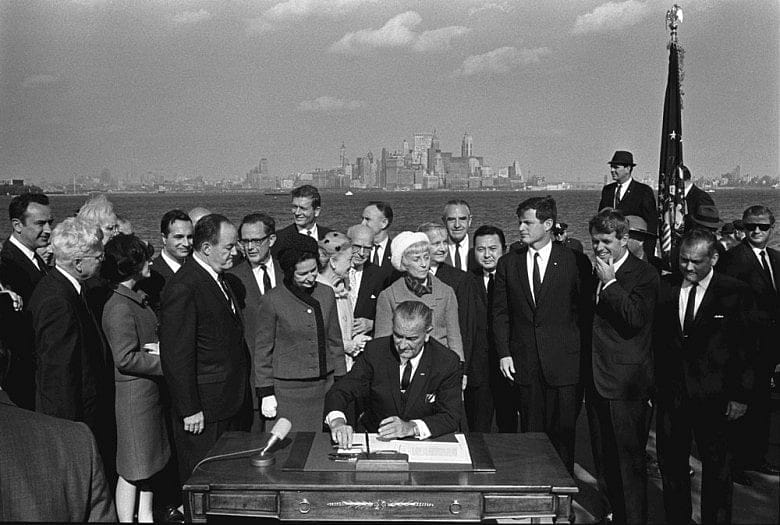Immigration: our No. 1 problem

It's been 50 years since Lyndon Johnson signed the Immigration Act of 1965 into law. In that time, the law has accomplished two things: First, it ended the offensive and discriminatory national origins quota system, as intended. Second, it has radically transformed America and will change the country even more radically over the next half century, an outcome that was not intended.
Since President Johnson put pen to paper at the foot of the Statue of Liberty on Oct. 3, 1965, the law has resulted in the arrival of 59 million immigrants. The foreign born population of the country has grown to 45 million and our population has exploded to about 324 million people – 72 million more than it would have been if not for the 1965 Act. In the process, the social, cultural and demographic composition of the country has also been dramatically altered in a way that is rapidly making the country unrecognizable to the people who wrote the law.

